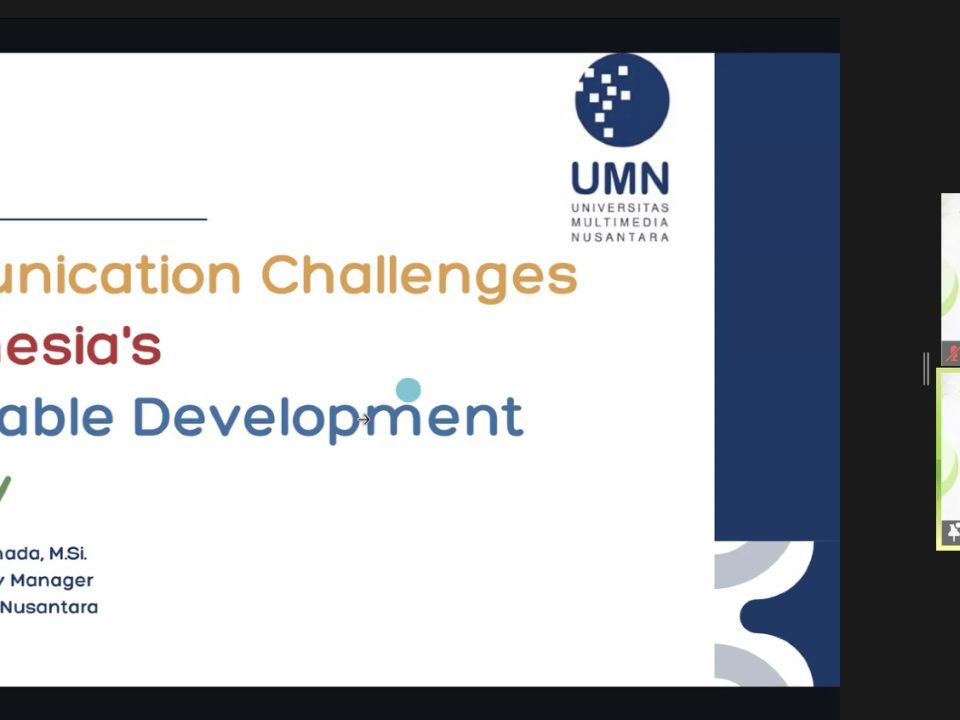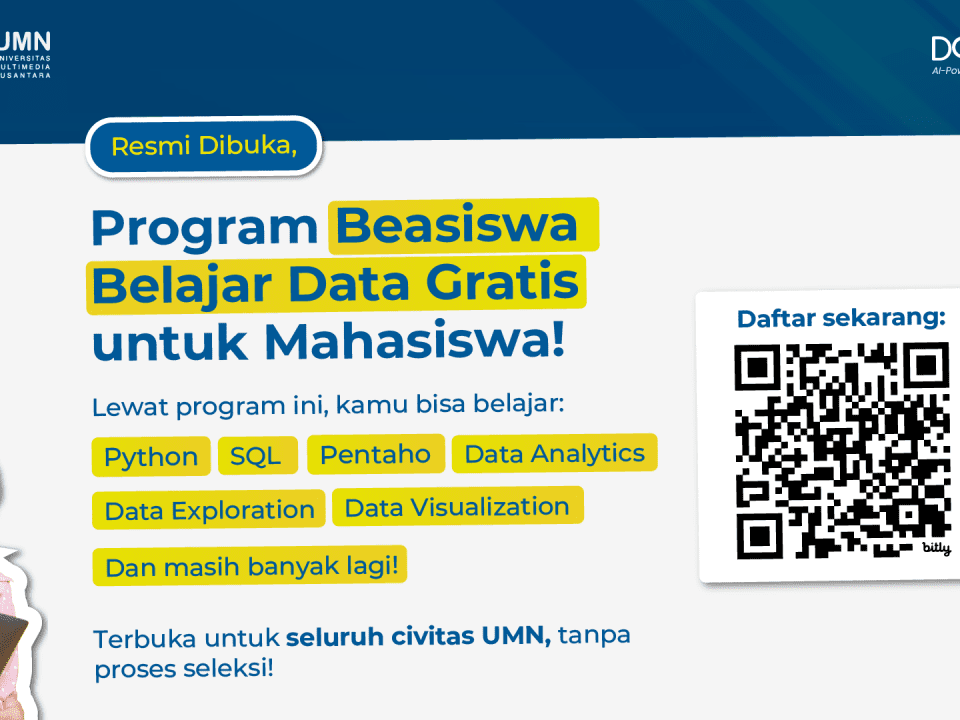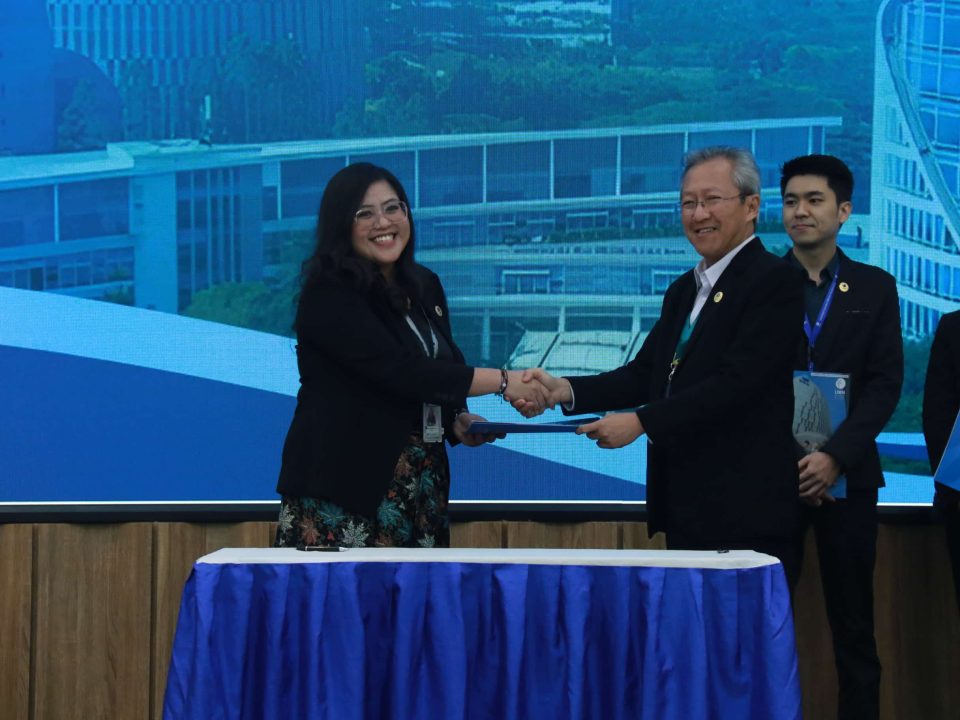
6 Alumni and Students of UMN, No. 3 is Viral!
September 16, 2022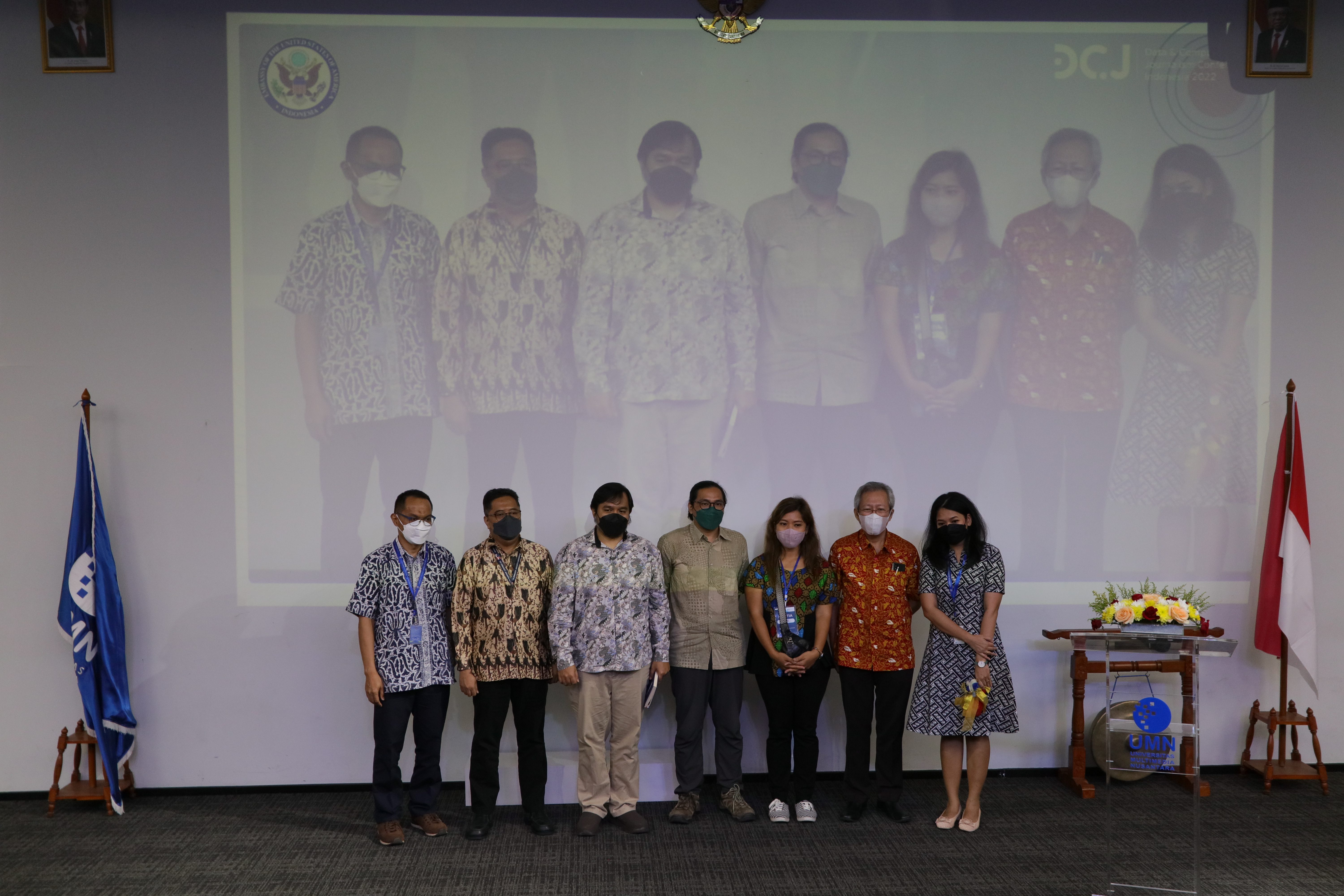
UMN and the American Embassy Hold an Indonesian Data and Computing Journalism 2022 Conference
September 19, 2022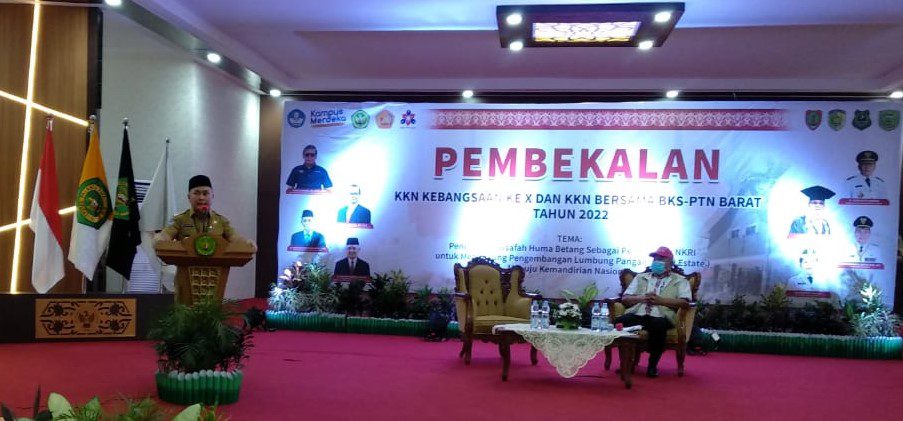
The Governor of Central Kalimantan, Sugianto Sabran, giving his speech in the National Community Service Program. (doc. UMN)
TANGERANG – The Ministry of Education, Culture, Research, and Technology (Kementerian Pendidikan, Kebudayaan, Riset, dan Teknologi/Kemendikbud Ristek) and the Cooperation Agency for State Universities in the western region (Badan Kerja Sama Perguruan Tinggi Negeri/BKS-PTN) held a National Community Service Program briefing (KKN Kebangsaan) in Central Kalimantan. In this activity, Multimedia Nusantara University (UMN) sent Benedictus Adhitia, a student representative from the Journalism Study Program to be the Field Coordinator in Pandih Batu village, Pulang Pisau Regency, Kalimantan. The UMN Community Service Bureau accompanied Adhitia as a university representative from Banten, Tangerang Regency. This debriefing activity will take place from 17-19 July 2022, and the implementation of KKN starting from 20 July to 20 August 2022.
KKN Kebangsaan is a national-scale program. This year, the program focuses on developing a food estate in Palangka Raya, Central Kalimantan. This program invites universities from state universities to private universities throughout Indonesia, from Sabang to Merauke.
The implementation took place in the Kapuas District and Pulang Pisau District and spread to 100 villages in the two districts. This activity is carried out alternately once a year by the BKS-PTN and the Consortium for State Universities in the Eastern Region of Indonesia in the eastern region (Konsorsium Perguruan Tinggi Negeri Kawasan Timur Indonesia/KPTN-KTI) involving all universities.
Andy Firmansyah, Head of the UMN Community Service Bureau, explained that this activity could increase the interaction, understanding, and concern of students from various universities in Indonesia towards the values of national diversity to knit the unity and integrity of the Unitary State of the Republic of Indonesia.
In choosing the students who can take part in this activity, UMN took into account several considerations and conditions.
“Some of the points considered are the credit scores, which courses have been taken, organizational experience, and the physical and mental readiness of students who will become KKN participants,” Andy explained.
Andy hopes UMN can sustainably contribute to every National Community Service Program in Indonesia. In addition, UMN students can also synergize with students from other campuses in Indonesia, both state and private universities.
The event was also attended by the Governor of Central Kalimantan, the Regent of Kapuas, the Regent of Pulang Pisau, and the Chancellors of All Indonesian Universities.
In this briefing activity, Central Kalimantan Governor, Sugianto Sabran, explained the direction of the Central Kalimantan regional development policies and the scale of development priorities in the fields of education, health, and the economy. In addition, the Governor also introduced the National Strategic Food Estate program and a provincial strategic program in the form of Shrimp Estate in Sukamara Regency in food security.
Sugianto hopes that the students who participate in this program can apply their knowledge during college and put it into practice.
Nugroho Priyono, Head of the Research Working Group of the Peat and Mangrove Restoration Agency, in his speech, discusses a topic on peatlands and mangroves. This is because the land in the National Community Service Program area is a wetland ecosystem. Peat is easy to burn when dry because it consists of a collection of leaf twigs that are not wholly weathered.
“It is hoped that students who will work in these villages can disseminate information to the surrounding community so that they are aware and understand how to protect the wetland environment and not to be afraid of existing regulations,” he continued.
As for the mangrove ecosystem on the coast, Nugroho hopes that the National Community Service Program students can socialize on how to maintain and cultivate mangroves that are used for the welfare of the people.
“Because it can be a breeding ground for marine animals, such as crabs, fish, and others and can benefit the surrounding community. In addition, peat and mangroves have a global role in mitigating climate change,” Nugroho concluded.
By Annisa Maulida | UMN News Service
English translation by Levina Chrestella Theodora
Kuliah di Jakarta untuk jurusan program studi Informatika| Sistem Informasi | Teknik Komputer | Teknik Elektro | Teknik Fisika | Akuntansi | Manajemen| Komunikasi Strategis | Jurnalistik | Desain Komunikasi Visual | Film dan Animasi | Arsitektur | D3 Perhotelan , di Universitas Multimedia Nusantara. www.umn.ac.id

